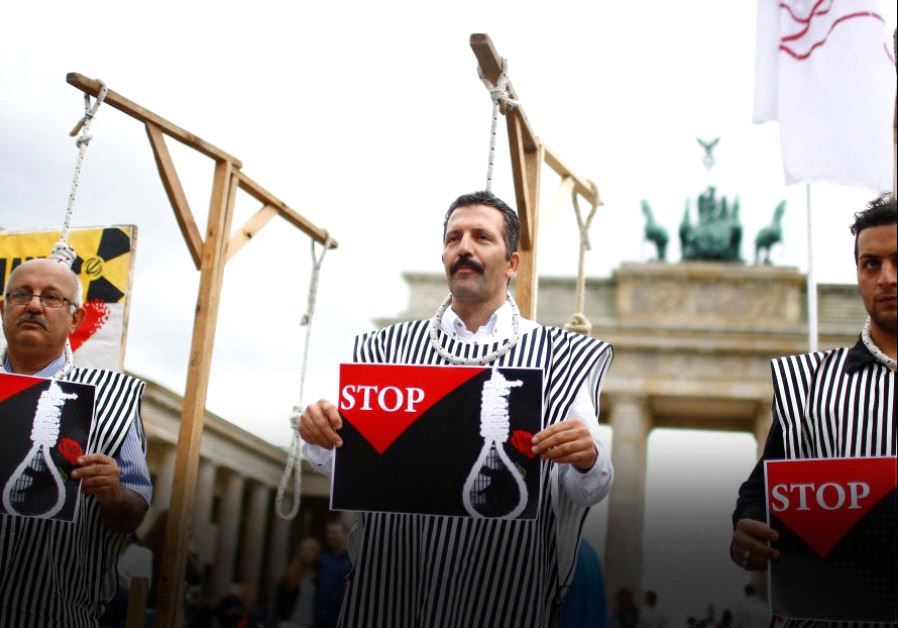Iran: Father of political prisoner sentenced to death commits suicide
Moradi's father's suicide was "high psychological pressure, uncertainty and concern about the execution of his son."
 People stage a protest against the execution by Iran of up to 20 Kurds
People stage a protest against the execution by Iran of up to 20 Kurds